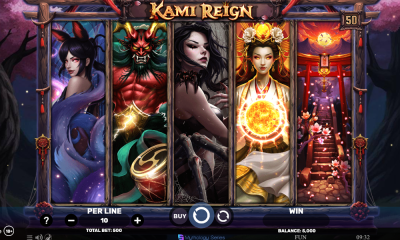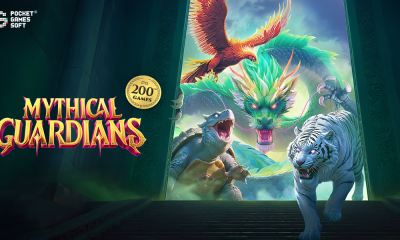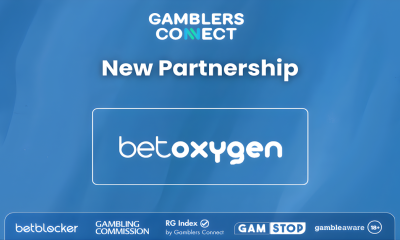Gaming
Experts reveal the future of cloud gaming
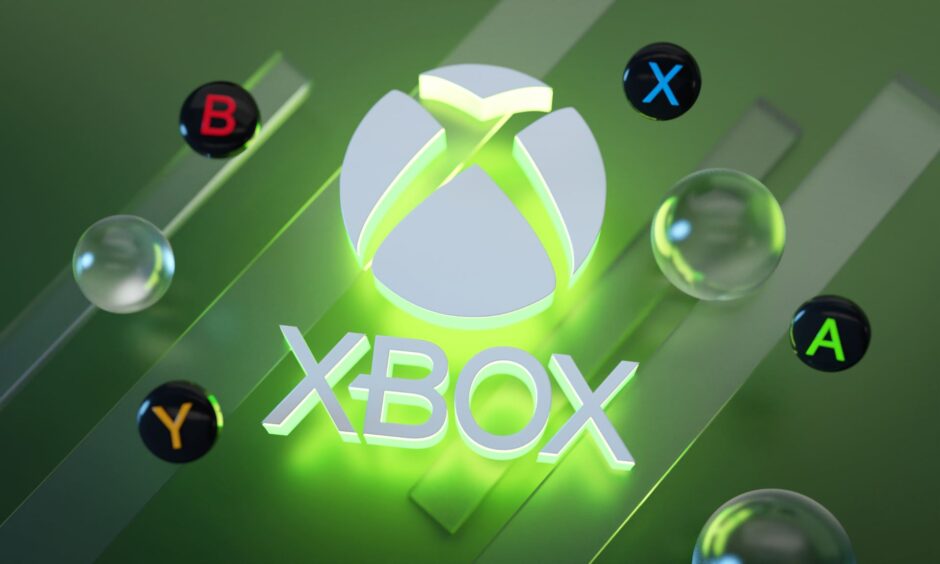
- Web hosting experts Fasthosts give their predictions on the future of cloud gaming
- Now, as Netflix subscribers outnumber Blu-Ray sales and Spotify listeners outnumber vinyl lovers, could cloud gaming be what the future holds for gaming?
It didn’t take long for video games to become a huge cultural force. Now worth roughly double the film and music industry combined1, gaming is massive – and by its very nature, it needs to stay at the forefront of technology. Alongside advances in graphics, virtual reality, and artificial intelligence, recent years have seen major developments in cloud gaming.
Cloud gaming is simply applying cloud computing to games, and now has the potential to revolutionise the way video games are consumed.
Tech experts at Fasthosts have now revealed their thoughts on the future of cloud gaming, from mainstream predictions to how cloud gaming is going to rewrite the rules.
Saving money and space
With gaming technology constantly evolving, upgrading hardware every few years is mandatory to enjoy the latest titles – but this comes with a large price tag. By connecting to devices in the cloud, costs are rapidly reduced to a subscription fee, and the provider takes on all the responsibilities of maintaining high-end gaming systems.
With no need for on-site hardware, cloud gaming saves space in the home and eliminates the noise and heat generated by gaming machines.
Gaming on demand is another aspect of cloud computing in general. Cloud gaming is often described as ‘Netflix for games’, and there are certainly parallels, with millions of viewers now accessing content on remote servers rather than home DVD players. However, due to the interactive nature of the media, cloud gaming is far more demanding than video streaming.
Is cloud gaming set to become mainstream in the next decade?
If the actions of the major players are anything to go by, gaming on demand could gain serious traction over the next decade.
The historical cloud gaming services, while innovative, were always somewhat niche. But will cloud gaming go mainstream any time soon? Both Microsoft and Google announced forays into the sector, with their trials ‘Project xCloud’ and ‘Project Stream’ respectively. They both decided to follow this up with Microsoft’s Xbox Game Pass and the less successful Google Stadia.
Even Nintendo, a far more traditional gaming brand, has established some major cloud inroads on its platforms. Streamed versions of demanding games like Assassin’s Creed Odyssey and Resident Evil 7 – originally designed for Xbox, PlayStation and PC – are becoming available on the comparatively weak Nintendo Switch hardware.
How cloud gaming is set to rewrite the rules: the long term impacts of cloud gaming
Looking forward, what are the long-term impacts of cloud gaming? To say that it could be disruptive is a huge understatement.
A cloud-dominated market would make publishers far less dependent on an installed base of machines and could even end up with every major publisher running its own cloud gaming service. Microsoft and Sony will continue to invest heavily in their own cloud offering and inhouse development studios.
Cloud gaming technology is rapidly maturing to the point where it could easily become the mainstream option, even if others continue to exist for enthusiasts.
Now, Netflix subscriptions beat Blu-ray sales, and Spotify users outnumber vinyl lovers. Games, as the less established and more technologically demanding medium, are just taking a bit longer to make the jump. All signs point to cloud gaming to become the new normal.
Powered by WPeMatico
Arena Racing Company
Arena Racing Company awarded United Arab Emirates Gaming-Related Vendor License
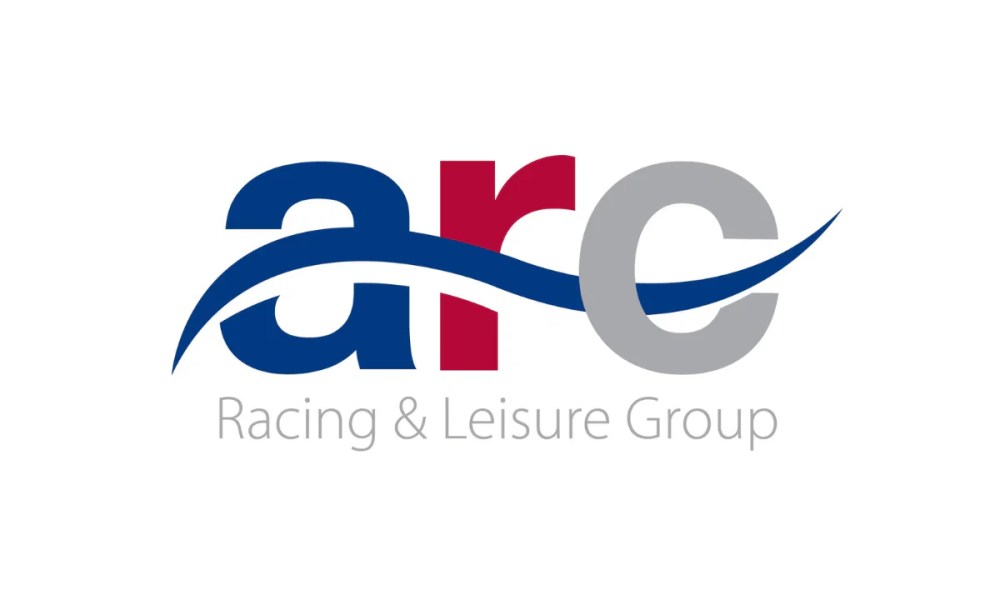
Arena Racing Company (ARC) has been granted a Gaming-Related Vendor license from the United Arab Emirates’ General Commercial Gaming Authority (GCGRA), an independent entity of the UAE Federal Government with exclusive jurisdiction to regulate, license, and supervise all commercial gaming activities.
The license, operational with immediate effect, affords ARC the opportunity to provide its products and services to licensed operators in the region. Notably, the Racing1 Markets service, an all-in-one horse and greyhound racing solution delivered in conjunction with Racing1 alliance media rights partners at 1/ST CONTENT, Racecourse Media Group (RMG), and Tabcorp, alongside technical partner Pythia Sports. ARC has been added to the list of licensed vendors as per the GCGRA website.
Jack Whitaker, Commercial Manager at ARC, said: “Obtaining this license is a great achievement for ARC and its Racing1 partners. The emerging regulated UAE market is incredibly exciting, and we look forward to showcasing our innovative products and services in the region.”
The post Arena Racing Company awarded United Arab Emirates Gaming-Related Vendor License appeared first on Gaming and Gambling Industry Newsroom.
Battle of the Tribes
POLYTOPIA WORLD CHAMPIONSHIP 2025 BREAKS RECORD PARTICIPATION AS FINALS DRAW CLOSER

Reading Time: 2 minutes
Celebrated strategy game The Battle of Polytopia confirms its first ever World Championships has exceeded expectations with over 10,000 sign-ups in its qualifying rounds. While no stranger to tournaments, previously hosting smaller scale, local tournaments called ‘Polysseums’, developer Midjiwan’s first step into global esports has been met with extreme success. The inclusive esports event has a $10,000 prize pool and will conclude on 6 December 2025, 14:00-21:00.
The finals will take place in front of a live-studio audience, with expert commentary and a chance to peek behind the scenes at Midjiwan itself. First place will receive $4,000, the runner-up will take away $2,000, the third and fourth place finishers will get $1,500, and the fifth and sixth place $500.
The Polytopia World Championship 2025 is being hosted by eSports platform, Challengermode, who Midjiwan has relied on for its monthly local tournaments since 2022. Midjiwan also partnered with Black Molly Entertainment to help organise and manage the event. Black Molly Entertainment have years of experience managing eSports tournaments, with notable events including the Geoguesser World Cup and CS:GO Pinnacle Cup Championship.
Midjiwan has worked closely with its community to ensure engagement is high with each round, building a bespoke ‘Spectator Mode’ into the game so fans can watch each game live through the game itself. In the spectator mode the viewer has visibility of all players simultaneously, with stats on how many cities, technologies, kills and more available for quick access.
Christian Lovstedt, CEO of Midjiwan commented:
“Polytopia has always been about welcoming all kinds of players into the world of 4X strategy. That’s why our championship is open to everyone – not just pros with sponsors. We’ve been thrilled at the amount of interest this tournament received from our community, reaching participation numbers way beyond our expectations. We’re excited to bring the finalists to Stockholm and can’t wait to see the strategies that emerge.”
The Polytopia World Championship 2025 kicked off in September, with its ‘Battle of the Tribes’ qualifying round – weekly battles where players competed to be the best in each of the game’s 12 tribes. After an exciting six weeks, the top player from each tribe faced-off, reducing the qualifiers to six finalists. These six winners are listed down below.
|
Tribe |
Qualifying Player |
|
IMPERIUS |
ArthurL248 |
|
BARDUR |
slimmingboy |
|
OUMAJI |
Dreamlander3000 |
|
HOODRICK |
Theetat |
|
XIN-Xi |
LeLiberateur |
|
LUXIDOOR |
Meisterlampe |
Recaps of each round of the tournament prior to the finals can be watched on the official Battle of Polytopia YouTube channel.
-
Part 1: Polytopia World Championship 1st Qualifiers Wrap-Up – BARDUR, IMPERIUS, KICKOO, ZEBASI
-
Part 2: Qualifiers Wrap-Up – Oumaji Hoodrick Yadakk & Quetzali – World Champoinship 2025
-
Part 3: Final Qualifiers Wrap-Up – Xin-Xi, Luxidoor, Ai-Mo & Vengir – World Championship 2025
-
Face-off stream: https://youtube.com/live/GnU6mWPoJiY?feature=share
To watch the finals live on December 6,visit here: https://polytopia.io/stream/
To stay up to date on the Polytopia World Championship 2025, or purchase one of the limited tickets for the live event, visit the official website or join the Official Polytopia Discord.
The post POLYTOPIA WORLD CHAMPIONSHIP 2025 BREAKS RECORD PARTICIPATION AS FINALS DRAW CLOSER appeared first on European Gaming Industry News.
Betiator
Delasport Unveils a Crash Game for Sports Betting

Reading Time: 2 minutes
Leading iGaming supplier Delasport teases a one-of-a-kind sports betting crash game called Betiator – a new in-play experience that merges live sports with the tension and excitement of crash games.
Inspired by the groundbreaking casino genre, the company once again pushes the whole industry to a new phase in evolution by allowing sports bettors to play in the same easy and fun way as fellow casino players. Crash games are booming in the casino world, showing that players crave more emotional, fast, and visually engaging formats – and Betiator brings that same adrenaline-charged energy to the sportsbook.
It changes the scene by introducing a truly innovative way to bet on sports, keeping players at the edge of their seats during the game. Designed to excite both sports bettors and casino players, it marks a defining moment for innovation.
This product comes as a logical next step in the evolution of live betting and the company’s goal to disrupt the iGaming industry. It demonstrates Delasport’s successful commitment to unique innovation: a strategy they call “Going Beyond Content” –building on the success of products and features like SuperPot, My Sportsbook, My Combo, Double My Winnings, and many more.
“Sports bettors deserve the same level of innovation and excitement that casino players get all the time,” Delasport’s CEO Oren Cohen Shwartz says. “At Delasport we’re taking the whole game to a new playing field with Betiator. Live betting won’t feel outdated anymore as we’re bringing in the thrill of the casino to sports betting.”
While details about Betiator remain under wraps for now, Delasport promises a completely new way to experience live sports. Operators and partners eager to see it in action can schedule exclusive demos and discover more at ICE Barcelona 2026, taking place January 19–21, where Betiator will make its official debut.
The post Delasport Unveils a Crash Game for Sports Betting appeared first on European Gaming Industry News.
-

 iGaming News 20263 days ago
iGaming News 20263 days agoSpinomenal Rings in 2026 with Japanese-Inspired “Kami Reign Ultra Mode”
-

 Hold and3 days ago
Hold and3 days agoPragmatic Play Rings in 2026 with Joker’s Jewels Hold & Spin™
-

 Five Elements Slot3 days ago
Five Elements Slot3 days agoPG Soft Concludes 2025 with High-Volatility Launch: Mythical Guardians
-

 Latest News3 days ago
Latest News3 days agoFrom ‘Mummyverse’ to Crash Games: Belatra Reviews a Landmark 2025
-

 Bespoke Gaming Studio3 days ago
Bespoke Gaming Studio3 days agoCreedRoomz and Casumo Forge Strategic Partnership to Elevate Live Casino Experience
-

 B2B gaming software3 days ago
B2B gaming software3 days agoGamblers Connect and BetOxygen Announce Strategic B2B Partnership
-

 Aztec Slot2 days ago
Aztec Slot2 days agoEvoplay Unveils Sunstone Riches: An Aztec Adventure Powered by the Sun
-

 Latest News3 days ago
Latest News3 days ago‘Chaos and Soul’: Ebaka Games Plots Global Expansion After Viral Launch




